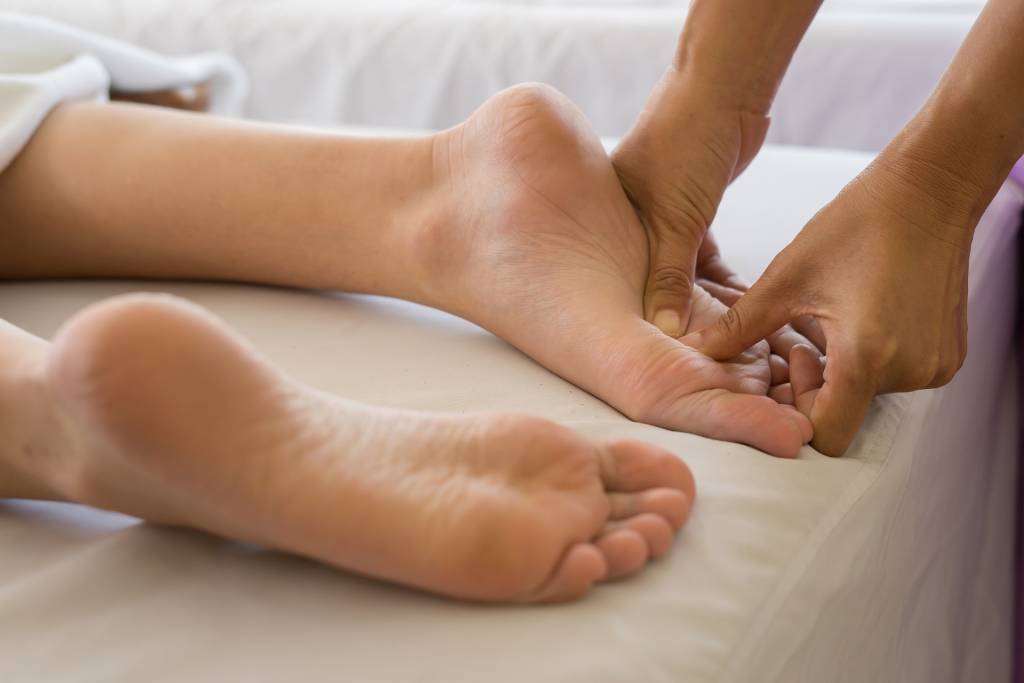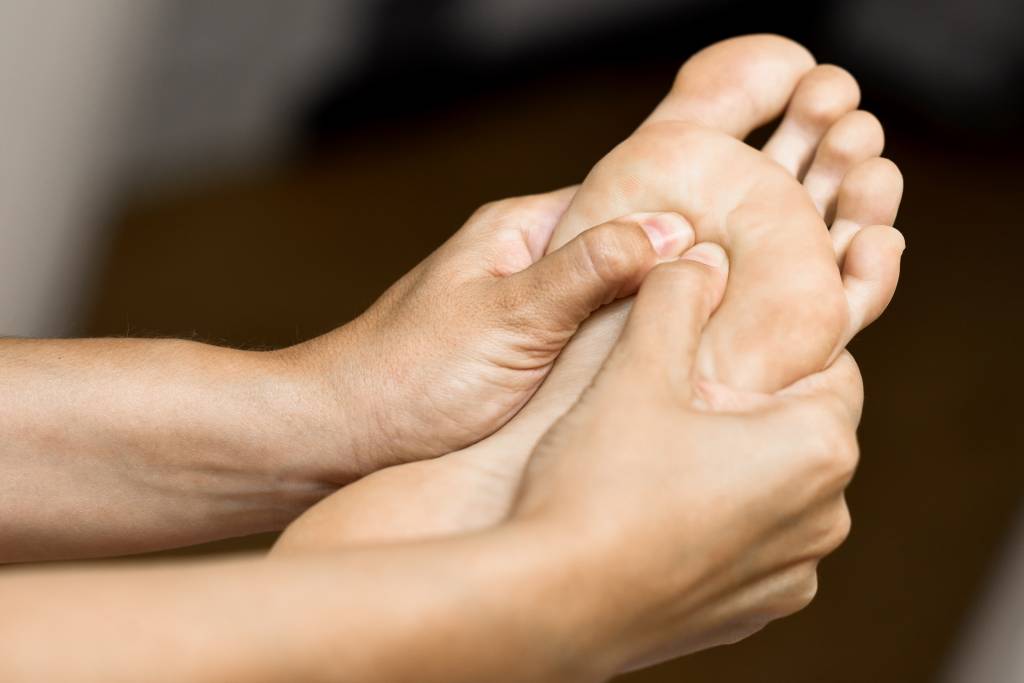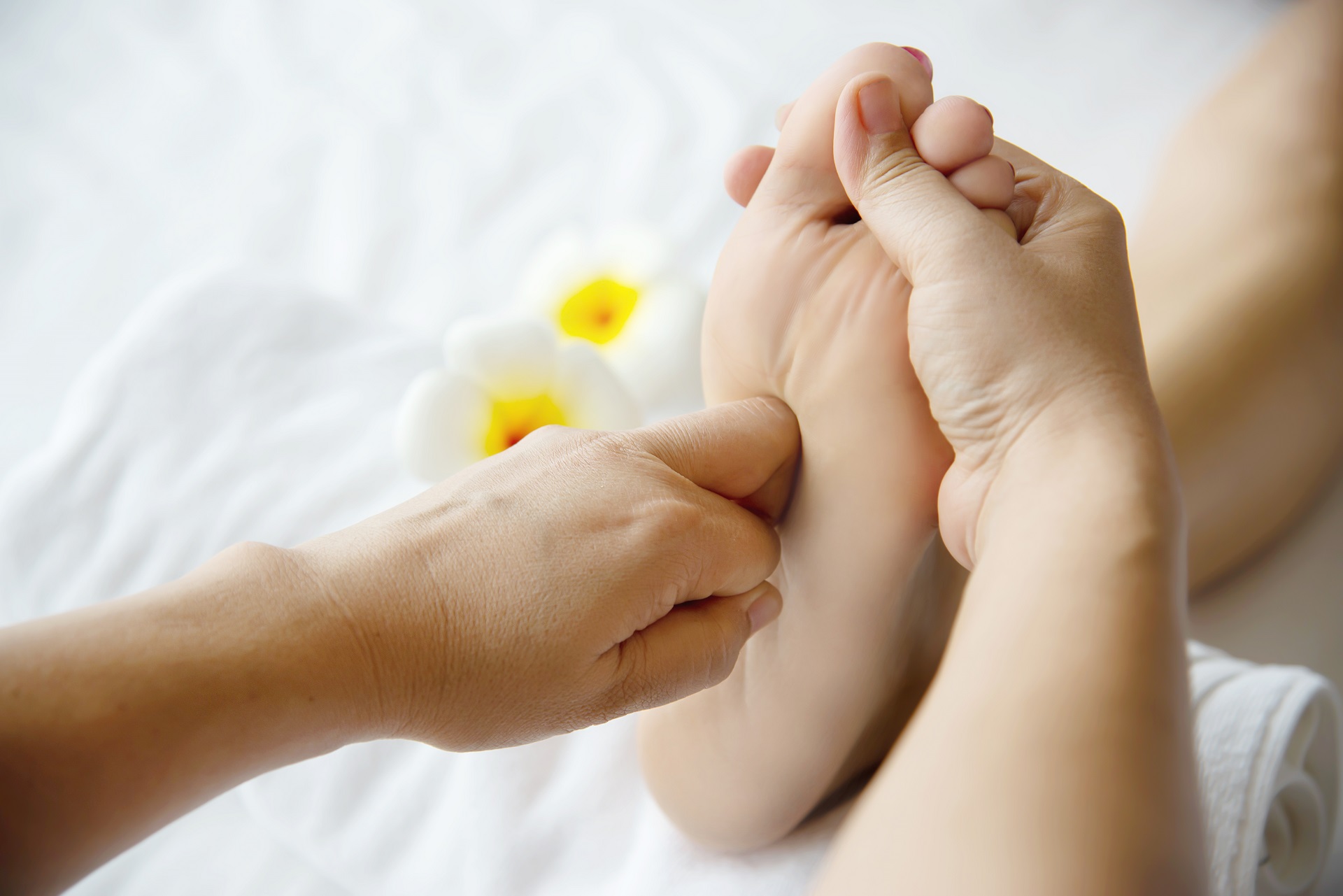Reflexology is a complementary therapy that involves applying pressure to specific areas on the feet, hands, or ears. It is based on the principle that these areas correspond to different organs and systems within the body, and by stimulating them, health and well-being can be improved. In reflexology, the feet are often the main focus. The therapist uses their hands, fingers, and various techniques to apply pressure to specific points on the feet. These points are known as reflex areas, and they are believed to be connected to specific organs or body systems. By stimulating these reflex areas, it is believed that the corresponding organs or systems can be positively influenced.
The underlying theory of reflexology is that there is a flow of energy, known as Qi or life force, that runs through the body. When this energy flow is interrupted or blocked, it can lead to discomfort, pain, or illness. By applying pressure to the reflex areas, reflexology aims to unblock and balance the energy flow, promoting physical and emotional healing. Reflexology has been practiced for thousands of years and has roots in ancient civilizations such as Egypt, China, and India. It has evolved over time and is now widely recognized as a holistic therapy that can support overall health and well-being. It is often used as a complementary treatment alongside other conventional medical practices.
Many people seek reflexology for various reasons, including relaxation, stress reduction, pain management, and improved circulation. It is a non-invasive therapy that can be enjoyed by people of all ages. While reflexology does not diagnose or cure specific diseases, it is believed to enhance the body’s natural ability to heal itself by promoting balance and harmony within the body. Overall, reflexology is a therapy that involves applying pressure to specific points on the feet, hands, or ears to stimulate the corresponding organs or systems within the body.
By unblocking and balancing the flow of energy, reflexology aims to support physical and emotional well-being. It has a long history, is widely practiced today, and is often sought out as a holistic approach to health and healing.
BENEFITS OF REFLEXOLOGY
Reflexology is a complementary therapy that involves applying pressure to specific points on the hands, feet, or ears. It is believed that these points correspond to different organs and systems in the body, and by stimulating them, it can promote healing and overall well-being. Some potential benefits of reflexology include:
1. Stress relief: Reflexology can help relax the body and mind, promoting a sense of calm and reducing overall stress levels.
2. Pain management: It may help alleviate various types of pain, including headaches, migraines, joint pain, and menstrual cramps.
3. Improved circulation: By stimulating specific reflex points, reflexology can enhance blood flow and circulation, which may benefit overall health and healing.
4. Enhanced relaxation and sleep: Reflexology can help improve sleep quality and promote deep relaxation, which is beneficial for managing sleep disorders and insomnia.


5. Boosted immune system: The therapy may help strengthen the immune system, making the body more resistant to illnesses and promoting quicker recovery from illness or injury.
6. Hormonal balance: Reflexology may help regulate hormonal imbalances and support overall hormonal health, benefiting various conditions such as PMS, menopause symptoms, and fertility issues.
7. Improved digestion: By targeting reflex points related to the digestive system, reflexology can aid in digestion, relieve indigestion, and regulate bowel movements.
8. Enhanced mental clarity and focus: Reflexology can help improve mental clarity, concentration, and focus, making it beneficial for those experiencing brain fog or difficulty concentrating.
9. Relaxation of muscles and tension release: Reflexology can help relax tight muscles, reduce muscle tension, and relieve muscle spasms, promoting physical comfort and relaxation.
10. Overall well-being: Reflexology provides a holistic approach to wellness by addressing physical, mental, and emotional aspects of health, leading to a sense of balance and well-being.
It is important to note that reflexology should not replace medical treatment or professional advice. It is advisable to consult a qualified reflexologist or healthcare provider before starting any new therapy.




